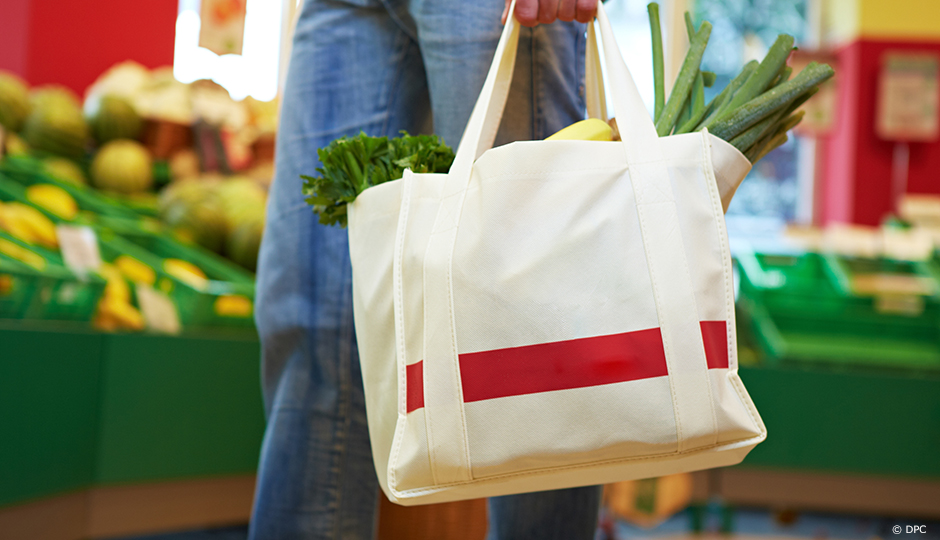Reusable bags carry more than your grocery shopping and other purchases: they also transport thousands of bacteria. Some of these, including the infamous E. Coli, can lead to severe digestive problems. There have been hundreds of cases of people being contaminated by their shopping bags, as these bags seldom make it as far as the washing machine.
Diego Mantovani, a professor in the Department of Mining, Metallurgical and Materials Engineering at Université Laval, set about keeping bacteria at bay by impregnating cotton and woven plastic bags with a solution of chitosan, a biomolecule with well-known antimicrobial properties that is obtained from shrimp shells.
The current processes "smear" the antibacterial solution over the material's surface rather than anchoring it solidly within the material's structure, for example between the weave of the fabric.
The researcher and his colleagues have developed a platform based on plasma surface modification to integrate their antimicrobial weapon into the heart of the atomic structure of textile, metal and plastic materials. Bags treated in this way can withstand over 100 washings, unlike existing antimicrobial products, which lose their properties after just a few cleanings. Diego Mantovani explains that current processes "smear" the antibacterial solution over the material's surface rather than anchoring it solidly within the material's structure, for example between the weave of the fabric. The use of chitosan will make it possible to produce antimicrobial reusable bags at a reasonable cost due to the abundance of shrimp shell waste.
The researcher is currently working on optimizing the process so as to make it more interesting for businesses in different sectors. Indeed, the platform could be used to inhibit bacteria on the surfaces of numerous objects, from door handles to countertops in restaurants and food factories.




